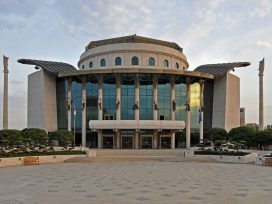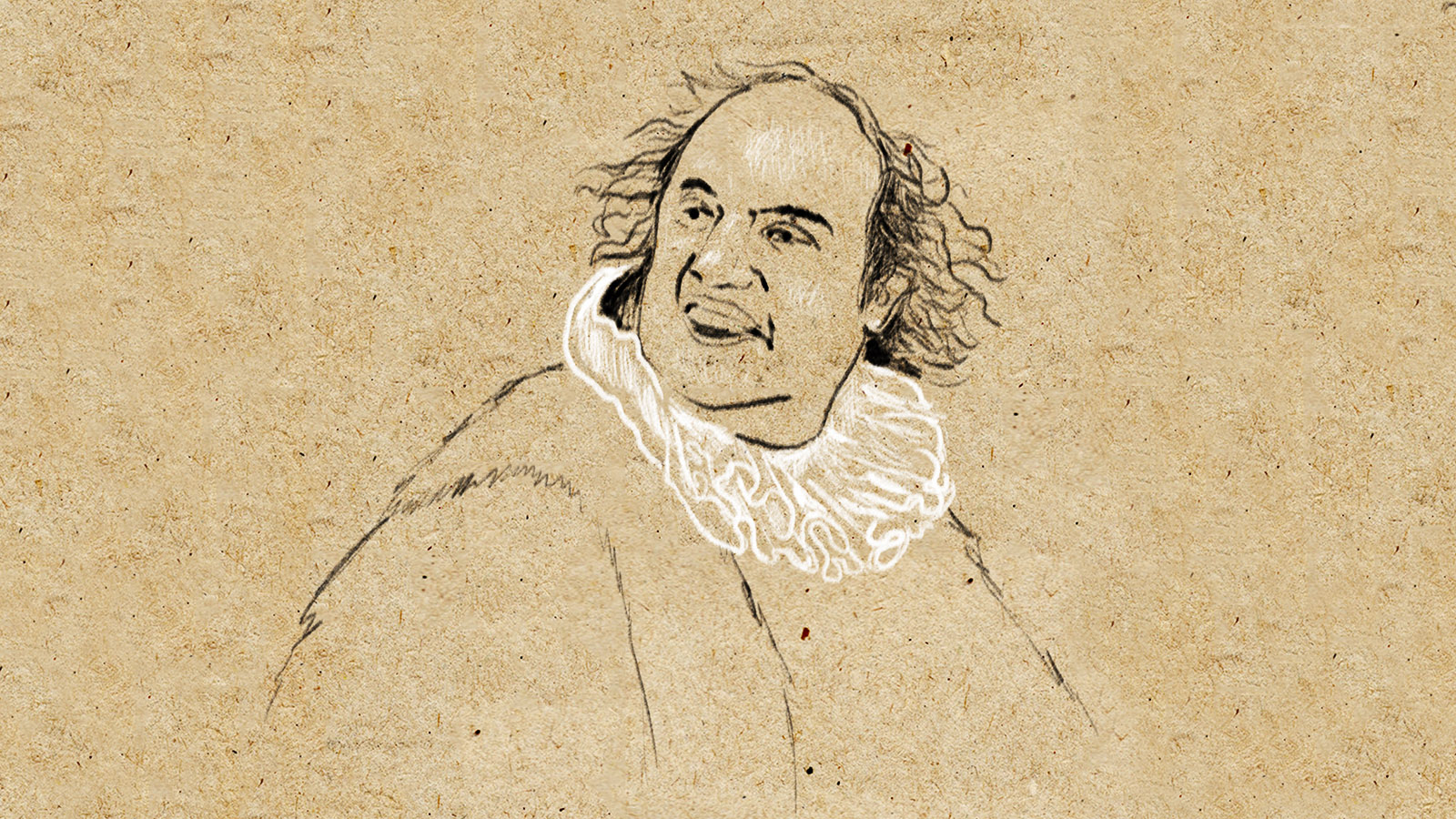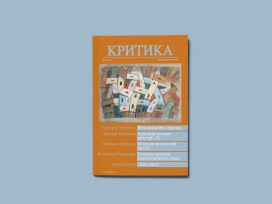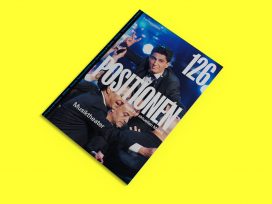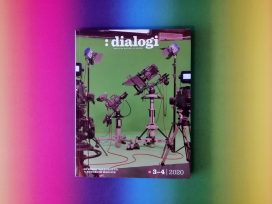In the 1980s, dramaturge Matthias Lilienthal worked briefly as a freelance journalist and assistant to the director at the Vienna Burgtheater. Between 1988-91, he was a dramaturge at Theater Basel before being invited to the Berlin Volksbühne the following year, staying until 1999. His many collaborators include directors Christoph Marthaler and enfant terrible of German theatre Christoph Schlingensief (1960–2010), who Lilienthal regards as a crucial inspiration for his own work.
In 2002, Lilienthal curated the Theater der Welt festival, showing productions from around the world in German theatres (Bonn, Düsseldorf, Cologne, and Duisburg). He would curate the festival again twelve years later, this time in Mannheim. As artistic director of theatre performance centre Hebbel am Ufer, Berlin, Lilienthal regularly collaborated with theatre troupes like Rimini Protokoll, regarded as the inventors of a new wave of documentary theatre. In autumn 2013, Lilienthal moved to Beirut to teach young artists. Seeing international cooperation as crucial for theatre, he still collaborates with some of the artists he met in the Lebanese capital.
Two years later, Lilienthal became theatre manager at the Münchner Kammerspiele, using his wealth of experience to redefine repertory theatre by including performance practices usually found outside theatrical institutions. However, Lilienthal’s approach does nothing to instrumentalize these institutions. On the contrary, he systematically opens them up to enable collective, communal reflections on what it is possible for theatre to be.
Lilienthal is a particular nuisance to Bavaria’s dominant political party, the Christian Social Union (CSU). They criticize him for the Kammerspiele’s sparse audiences, avoiding conventional plays, and showing work from too many genres. This, they say, offers too much content aimed at younger audiences and refugees while ignoring the needs of, for example, season ticket holders. Bavaria’s conservatives can soon breathe a sigh of relief, though, since Lilienthal is to leave Kammerspiele in 2020.
Q: What is the role of the city theatre (Stadttheater) today?
ML: There is a long tradition of the Stadttheater in Germany. They were founded some two hundred years ago and have existed longer than the German nation-state. The Munich Kammerspiele, for example, built in a perfect art-deco style, used to be the foundation of the city’s bourgeois culture. A family of bakers owned the houses around and in the theatre’s back yard. The Nazis nationalized all German theatres to have more control over them, and many publicly-funded theatres retain those structures. Today, the Stadttheater functions as a contemporary repertoire dealing with current social issues. I grew up with reinterpretations of classical plays, mainly performed in the Stadttheater. Interpretations of The Cherry Orchard, Hamlet, or Othello are a regular part of their programs. Sometimes, I get the feeling that this way of doing things is coming to an end, but the experience of working in production houses and festivals between 2000-15, urged me to produce a ‘hybridization’ of the Stadttheater and independent forms.
Q: What does the current state of German theatre look like to you?
ML: This is a very difficult question to answer. It is difficult to describe its status. I think the situation has changed a lot in the last ten years. Perhaps the biggest change is that the systems of the Stadttheater, independent theatre, and international perspectives intertwined to the extent that non-institutional producers acquired a higher – if not the same – status as the Stadttheater. I think that the most urgent question of our times is how we deal with globalization. It is right to say that political parties are no longer oriented on the ‘Left’ or ‘Right’, but there are new structures emerging which mean we must have an opinion on globalization. In the cultural field, I am very clearly a fan of globalization, and I believe in the idea of an ‘international theatre-exchange’. At the same time, however, this is very ecologically questionable. I love that positions from Tokyo, São Paulo, Santiago de Chile, and Munich are coming together but, at the same time, you have to be aware what all that travelling does to the planet.
Q: Do production houses have the same means to finance themselves as the Stadttheater?
ML: Not at all. They have entirely different, incomparable, financial opportunities. I would probably say that independent theatre in Germany receives only ten percent of the funding offered to state theatres. Their situations are totally different. Independent theatre groups have to think about how to find audiences and money with every project.
Q: Structures like those of the Stadttheater tend to have their own hierarchy, which is probably visible in the production process. What do you think about that, compared to the independent scene?
ML: The structures in the Stadttheater are hierarchical but, at the same time, it requires teamwork. The employees of the Münchner Kammerspiele are very self-confident, and they have their own opinions on all the issues. Collaboration requires many discussions.
Q: Would you say that, in the last resort, a certain defined structure influences the concepts and ideas that are communicated on the stage?
ML: Yes and no. Take, for instance, our production of Uncanny Valley, by Stefan Kaegel of the theatre company Rimini Protokoll, which we put on at the start of last season. Stefan wanted to do a production with a robot, so we have one doing its electronic performance for an hour. We show it quite successfully within the regular program, but we also tour with it a lot. The structure of the Kammerspiele would not normally allow this kind of production, but it is possible.
Q: Would you say that theatre somehow has to invent – perhaps spontaneously – its own mode of production?
ML: The Kammerspiele works with a clearly-structured theatrical mode of production: you have eight weeks, a budget, and some actors, and you usually need to plan the stage design half-a-year in advance. But we adapt this model for different artistic needs. I think each production should have the same chances, but I do not categorize them as ‘A’ and ‘B’ productions, to use a paradigm from the film industry.
Q: You define the Kammerspiele as a ‘city theatre’, but you have opened up its structure. How can theatre leave a political impact? Does it have to do with its form or its content, its discourse, or does it have to engage in activities outside the very theatre building itself? What is your definition of the ‘political’ in the theatre?
ML: When one enters a new city and a new theatre, it is necessary to ask what is usual or expected in this context. Does it offer artistic possibilities that can give the city a new kind of experience, a new perspective? Independent productions are rarely shown in Munich. When I came to the Kammerspiele, I met an established generation of actors, but I brought in a new generation of directors, mostly in their thirties. Of course, actors, directors, and audiences always form a kind of community. I also try to attract a younger audience to the theatre, by addressing political issues like the refugee crisis. Then a range of political activities came about by accident outside the theatre, when some of my friends organized demonstrations against the far-right and hatred of refugees in various cities. The governing party of Bavaria, the Christian Social Union, tried to ban these demonstrations. A big political debate followed. I am, however, very enthusiastic when discussions of this kind start.
Q: Apart from the younger part of your audience, who would you like your work to address?
ML: We address different groups with every project. My aim is to reach out to surprising mixtures of audiences. The robot in Uncanny Valley, for example, personifies renowned author Thomas Melle, who suffers from depression. One part of the audience is very interested in Melle’s writing, the other comes from high-tech industries, and the remaining part is perhaps an audience of young gamers. I am happy to attract an audience which is split like this.
Q: Reich [Rich] was the motto of the ‘Politik im freien Theater’ festival is taking place at the Kammerspiele in November 2018. How can we understand this notion today? Is it a symptom of contemporary society?
ML: To be ‘rich’ means, at the same time, to be poor. People earning average wages in Munich are poor due to the growing cost of living, so they cannot afford anything. I have just seen a performance of James Leadbitter and Jessica Huber’s Tender Provocations of Hope and Fear [in which they invite disabled artists and activists to talk about their personal experiences of inequality and exclusion]. Kim Noble, a performer from London who suffered a breakdown and was diagnosed with bipolar disorder, shows his life as a cleaner in the City of London and which tells his story with an animal, a squirrel.
Q: Cities are places of political conflict. Your Kammerspiele productions often reflect this. In some cases, you even stage a performance in urban areas. Why?
ML: Realistically, only ten percent of the population goes to the theatre. Ninety percent are not interested at all. Installations or performances in public space give us the chance to reach 100 percent of the people of Munich. I would like to break out of our bourgeois ghetto and occupy different parts of the city.
Q: Which specific topics need to be addressed in Munich?
ML: We work a great deal on the issue of internationalization. We are working with Toshiki Okada from Tokyo, Rabih Mroué from Beirut, Yael Ronen from Tel Aviv and Berlin, and Amir Reza Koohestani from Tehran, among others. Munich is, economically, a global city, but there is an ever-present reactionary element: an inward-looking cultural conservatism. I am interested in this relationship between globalization, internationalization, and the local culture. My definition of theatre is very much based on the thinking of sociologist Dirk Baecker, which comes from systems theory, since he was a pupil of Niklas Luhmann. He considers theatre as an open laboratory of (and for) the future. That is very much connected to what I try to do.
Q: In Berlin in the ’90s you frequently collaborated with Christoph Schlingensief. You still often say his work is the highest possible point of theatre, or the best way to do it. Why do you think so?
ML: I very much liked spending time with Schlingensief. His thought combines experiences of commercial TV, popular culture, visual arts, theatre, ‘splatter’ films, etc. To mix all that together to reach wider society was a considerable influence on me.
Q: Such was, for example, his controversial project in Vienna in the year 2000.
ML: We did that together.
Q: The project dealt with asylum seekers. Can you imagine such a project today in Munich, since the ‘migrant question’ seems to be a burning issue right now?
ML: Definitely not. Contemporary discourses are much crueler. Bitte liebt Österreich would now seem romantic, or even a kitschy kind of resentment. Schlingensief, as I remember him from 2000, would very likely have used today’s online ‘troll factory’ to attack the Christian Social Union, the Freedom Party of Austria, and likeminded people. He was always searching for new disturbing images in his movies.
Q: Would you say that satire is theatrically effective today?
ML: No, I don’t believe that.
Q: But isn’t Schlingensief’s work usually labelled satire? Wouldn’t you agree?
ML: No, I feel that it owes much more to the ‘splatter’ movie genre. That is much closer to my experience of Schlingensief than satire.
Q: Reality seems stranger than fiction, and documentary theatre is very present in Slovenia right now. This approach was also typical of your work at Hebbel am Ufer. Does this artistic form still meet the needs of the current social situation?
ML: Documentary theatre has been very valuable for the last fifteen years, but then suddenly we reached a point when nobody seemed to care about it anymore. At the moment, politicians and parties are not talking about reality or truth anymore. They are creating fictitious realities. European politics has become a Hollywood-like industry of illusions and fictitious representations. This opens up a whole new question – how do theatre and art relate to this? This question will claim the next big change in theatre. I have no idea whatsoever what this change might bring.
